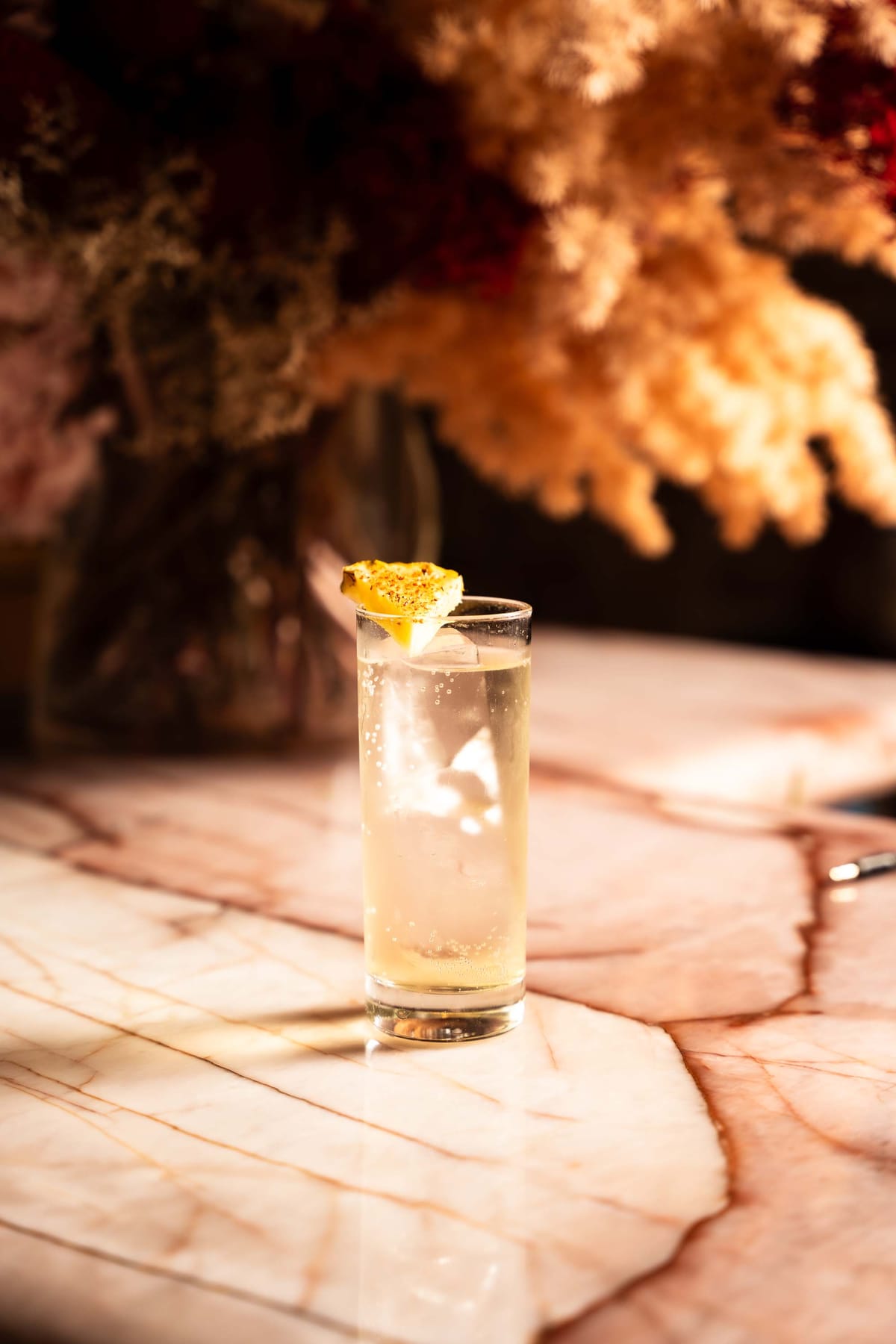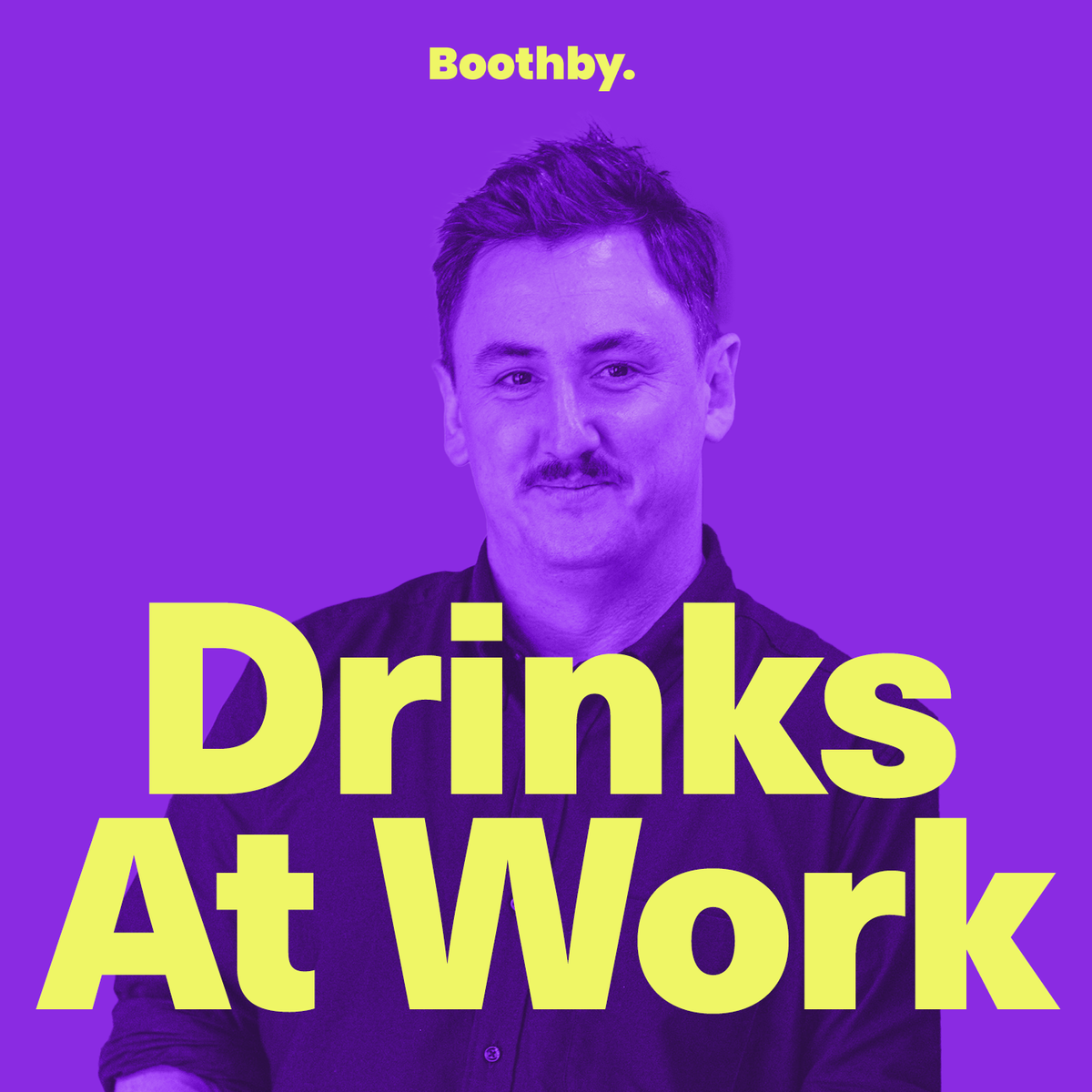Don’t do (bar) business with arms dealers, says Jason Williams
“There was Atlas, Raffles, and then there would be Pegu Club; all really career changing projects to work on.”

Registrations for the NSW and Victorian rounds of Speed Rack are live — register your interest in competing here. The fastest two competitors from each state round will go through to the national final in October. Get involved — it’s a great comp for a good cause! — and read more about the competition in our interview with co-founder Ivy Mix, here.
As told to Sam Bygrave
I was recruited by the co-founders of Proof and Company, the spirits distribution business based out of Singapore. They were bringing craft spirits to Southeast Asia, but they realised they couldn’t compete with the big brands on price or marketing budgets.
They also had a cocktail bar, 28 Hong Kong Street. And they realised that by promoting advocacy and adding value to their customers, they could then build rapport and commercial relationships.
So what does that mean? That meant in the early days going into venues and helping on a Friday night if they’re short staffed; helping them to choose their glassware, or choose their spirits writing their cocktails for them if they didn’t have that expertise. We helped with liquor licensing and building fit outs. And we did that on an ad hoc relationship basis for a while.
They realised there was a proof of concept and they wanted to put more structure around it, and so they hired me in 2015. We loosely modelled our consultancy team after a traditional creative agency, a graphic design firm or interior design.
I turned it into what’s called Proof Creative. We built the team up, we expanded markets, we took on bigger and more complex projects. I was there for eight years.
The first big, complex project I took on was Atlas. It was a big part of my life. It was my third or fourth week in Singapore, when my boss and mentor at the time, Paul Gabey, said, we’re going to this venue — the owner of the building wants to talk to us about an under-utilised lobby bar space. I turned up and it was this amazing, voluminous space, which was called Divine Wine Extraordinaire at the time. No music being played, really sad, really shitty food, $10 coffees, empty of people — but just an incredible space. They wanted to create a world famous bar. I met a guy called Uncle George, who was the patriarch of the broader family.
We pitched to him — they are huge collectors. They have a 50,000 strong whisky bottle collection. They have an insane wine collection. And when I say collection, we’re talking warehousing. They buy pallets at a time. They have two full-time family somms. Their wine cellars — which are traditional European-looking caves in a Hong Kong mountain — are just incredible.
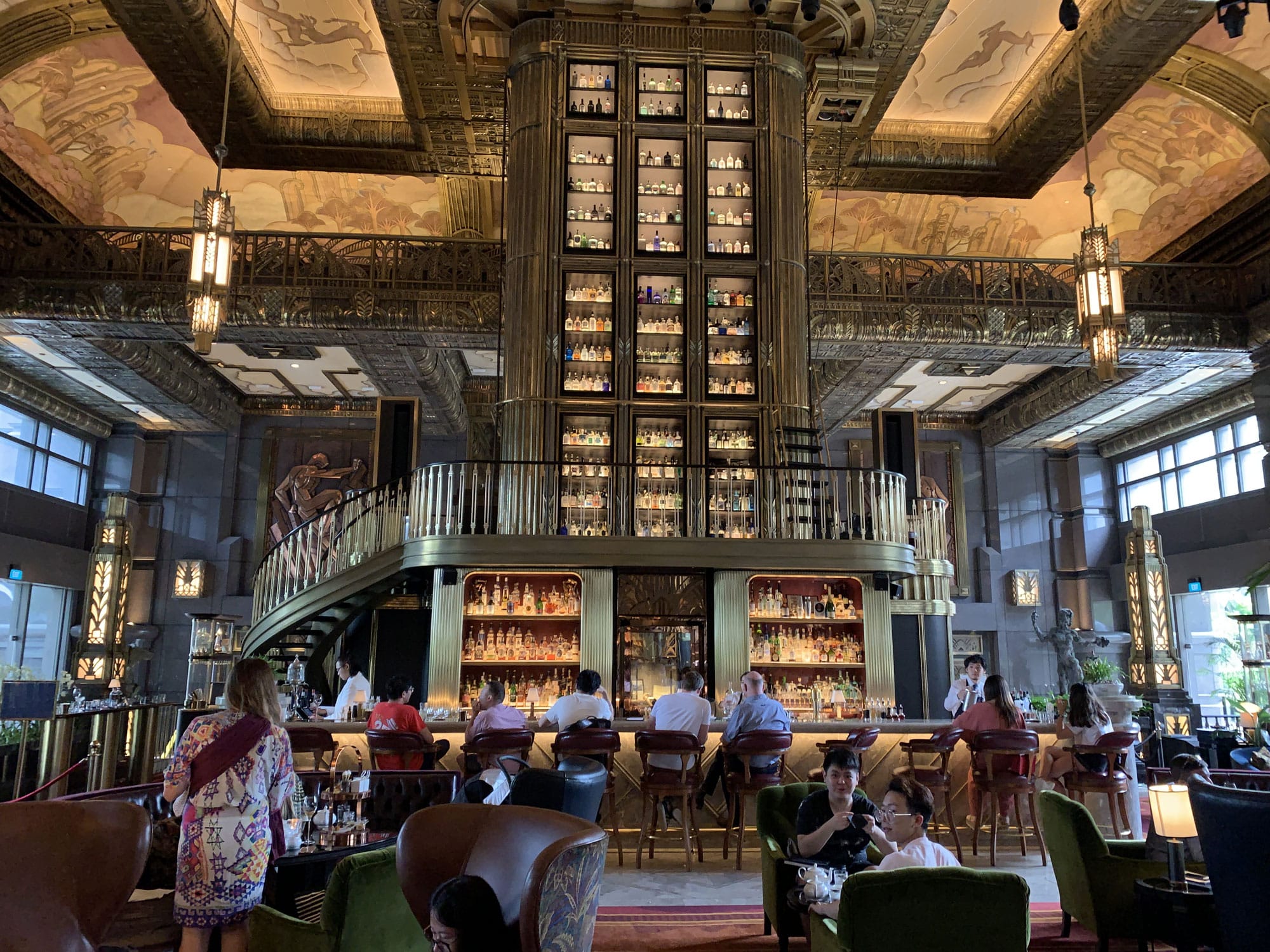
We knew that they liked collecting, so we pitched to them that this space deserves to be a world-class bar. We know that you love whisky to collect. What about if we did the world’s greatest gin collection? That really got Uncle George’s attention.
We opened with a thousand gins at Atlas in 2015. And they’re about 1400 now.
We got approved from Uncle George and we embarked on this incredible journey. To work for a private family, there’s a real legacy, there’s real sentiment involved.
It was ours to fuck up. I remember saying we can be sometimes cynical of these world-class bars overseas that have seemingly unlimited budgets — that’s us now. So we can’t fuck it up.
And I don’t think we did. I’m very proud of it. It was a big, big part of my life, and still is to an extent. They’re close family friends now, and we learnt a lot.
The most colourful project, though, was the Pegu Club scenario.
It came about through a members club that we worked on and opened. One of the members was second or third generation Burmese Irish, and had made their money from jute — what we call hessian — in Myanmar, Burma. Long story short, they’d been granted a 99 year lease on the original Pegu Club site. And the Pegu Club is not just a bar or even just a building, it’s a sprawling property. I don’t know how big it is, but big enough to fit a five-star hotel and quite a large F&B precinct and retail and sprawling grounds and gardens. It’s a really big property footprint, right in the middle of where all the embassies and consulates are in a good part of Yangon, the capital. I’m not familiar with the city, I’ve been there twice.
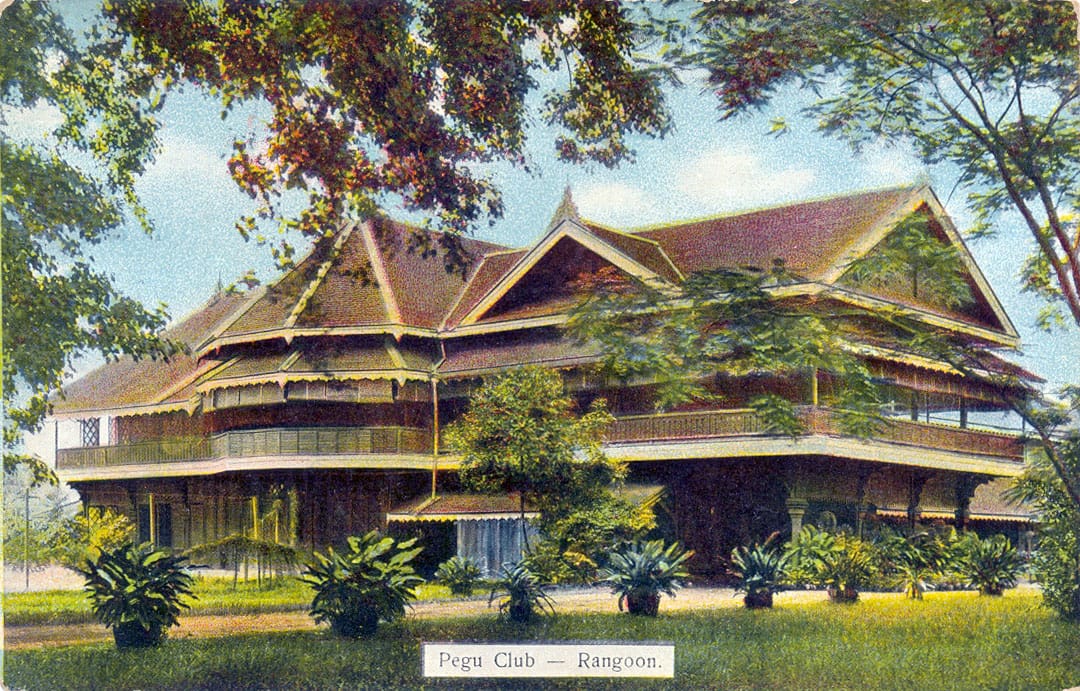
They were a diversified private business. When I inquired, they said they own some ports — the first time I’d met someone who owned ports. They explained some of their other businesses, from jute to rubber, and airline parts and leasing.
They’re a very wealthy family, they’re ambitious, they’re quite patriotic. Even though they lived and studied abroad for a lot of their life, they now wanted to do something really special with the Pegu Club because they realised the cultural significance of it, albeit tied to colonialism and the dark part of that.
Myanmar had been the most isolated country in the world, with a military dictatorship government. But Myanmar was opening up at that time, having been quite a closed place.
When I was there, everyone was quite buoyant and positive about that political situation. Rosewood had a hotel, Marriott International, IHG and Accor were all in talks about developing five-star hotels there. Everyone in Myanmar were quite excited and I guess this family were riding that wave; the government had opened up, they were open to more foreign investment, open to tourism.
It’s an awesome city, in the middle of Yangon. It reminded me of Cuba, actually. In the 1920s, 1930s, it would have been amazing — they even called it the Jewel of Southeast Asia. In the time of Rudyard Kipling, it was busy and cosmopolitan. You can see this colonial architecture in the CBD, but it’s completely decrepit, falling down, and growing over.
After having many discussions with them and getting assigned the consultancy contract, our scope of work was to work on three different venues. Pegu Club, a pub style offering, and then a cafe restaurant offering. It was going to be in a broader precinct, with a members club, and a Japanese restaurant. There was going to be a big day spa, some luxury villas, retail, and a five-star hotel.
We put together preliminary concept directions. I reached out to Audrey Saunders for a great collab, to bring out the modern Pegu Club (then open in New York) to the old Pegu club. I had a call with Dave Wondrich, to do some serious writing and research for it.
We were super buzzed. We’d also worked on Raffles in Singapore for years before this — so there was Atlas, Raffles, and then there would be Pegu Club; all really career changing projects to work on. Iconic.
I landed in Myanmar and spent a few days there the first time. They’d already done some significant kind of upgrades and cosmetic works, not to the Pegu Club itself — that was still quite decrepit — but they had renovated a banquet space.
The original Pegu Club had been there since the 1880s, but in the 1920s, the Prince of Wales visited, so they built a beautiful banquet hall there. And they had renovated that. That was open for some conferences, and they had beautified the grounds. We went there, had some workshops and site visits.
And I made a Pegu Club cocktail at the Pegu Club, and you could see the actual bones of the room, the heritage and pressed metal ceilings.
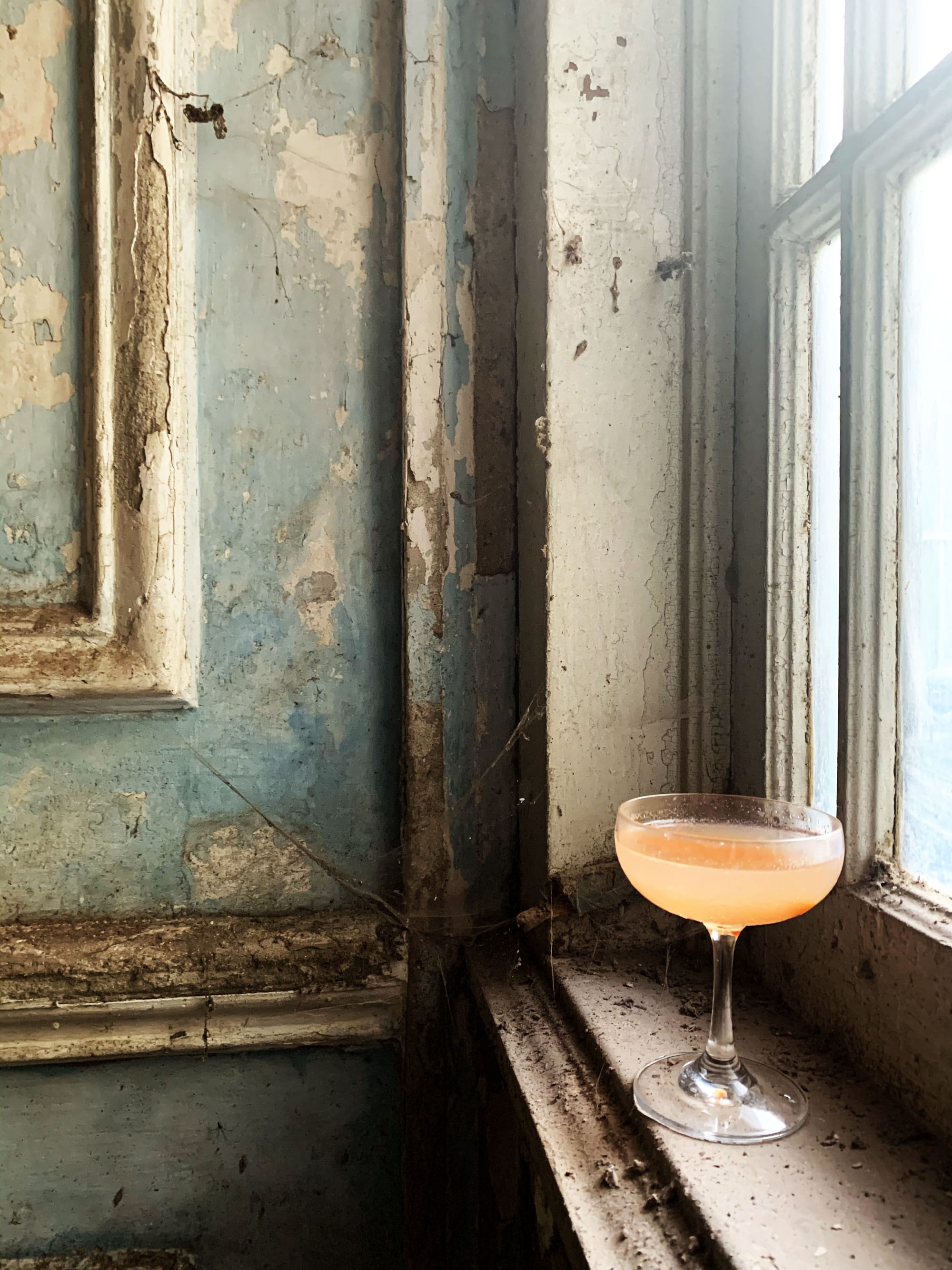
I don’t think anyone had used Pegu Club since the Japanese in World War II; no one had used it because the Japanese used it as a headquarters and a prison. There’s also buildings that had been built by the Japanese that probably had a pretty dark history.
So I made the first Pegu Club in the Pegu Club since the 1930s.
I did some touristy stuff, ate some street food, and just got a sense for it, but more importantly, hung out with the client from the family.
She was very ambitious and very creative and wanted to do really good things because she was quite passionate about Burma, Myanmar, and wanted to do a quality cocktail bar — she lived in London, so she knew what good looked like.
It just felt normal at time. It was a very motivating and stimulating trip. We’re going to work on the Pegu Club and the venue itself is beautiful. We have all these amazing ideas around how to bring it to life. We go back and we continue to work on it. Covid hit, we’re still working on it, we still have weekly calls. We’re pumping out these presentations on what beverage menus can be, research projects. We’re working on the two other venues as well. A lot of work’s been done.
Then it just went quiet. The world’s gone through a lot of shit at that time, we understand it, and we’re working on some other projects anyway. But it went on — just radio silence. They didn’t reply to emails. They must have known something.
Because then we get sent a link to an article in The New York Times. It’s an investigation into these arms dealers. They’re from Myanmar and, as it turns out, they are the same family that we’re working for. The Times mentioned the people by name that I was directly dealing with.
And one of the industries that they were in — that they referred to as airline parts and leasing — well, it turned out that those airplane parts were actually missile systems, radar systems and different defence systems.
In Myanmar there’s five main generals and affiliated families. In commerce and perhaps society, if you’re part of the system you’re generally going to be connected in some way to one of those five generals. It was a pretty scathing article that we read, and we made a call pretty quickly that we didn’t want to be involved with those people. And we actually never heard from them again. The thing is, in retrospect, you know, they paid their deposit straight away, which is unheard of, overnight. And we just thought, this is the best client: the Pegu Club, and young and passionate, ambitious, worldly people who didn’t even flinch at the bill. Big chunky fees, big chunky deposit, paid it straight away.
I could never have imagined that, when I started in hospitality in Queensland — delivering pizzas for Eagle Boys in the late 90s in Coolum Beach — I never thought that I’d be dealing with arms dealers from Burma.
The second issue of Boothby magazine has landed — to get issue two and the next three issues to your home, you can sign up to support Boothby right here.
